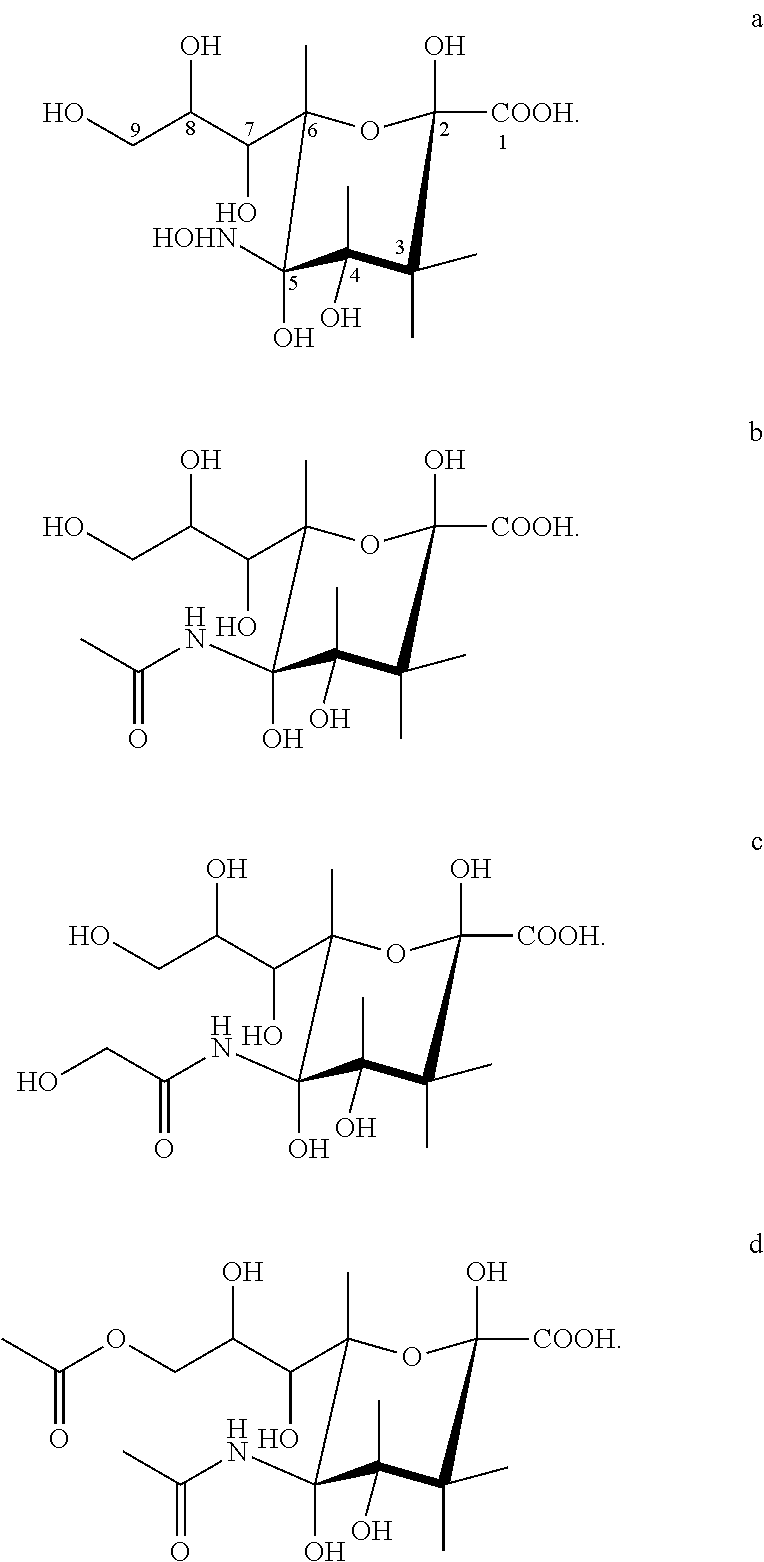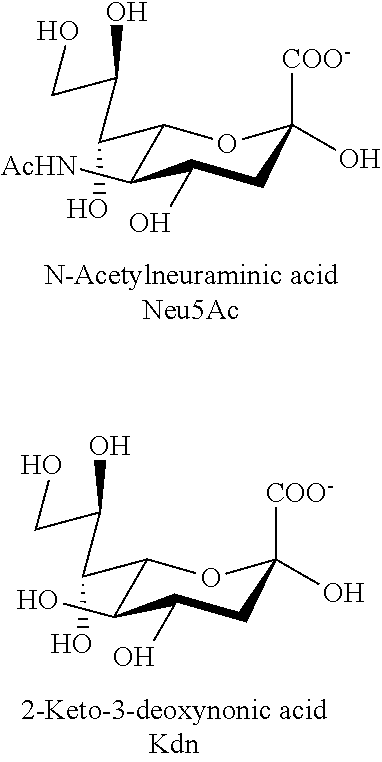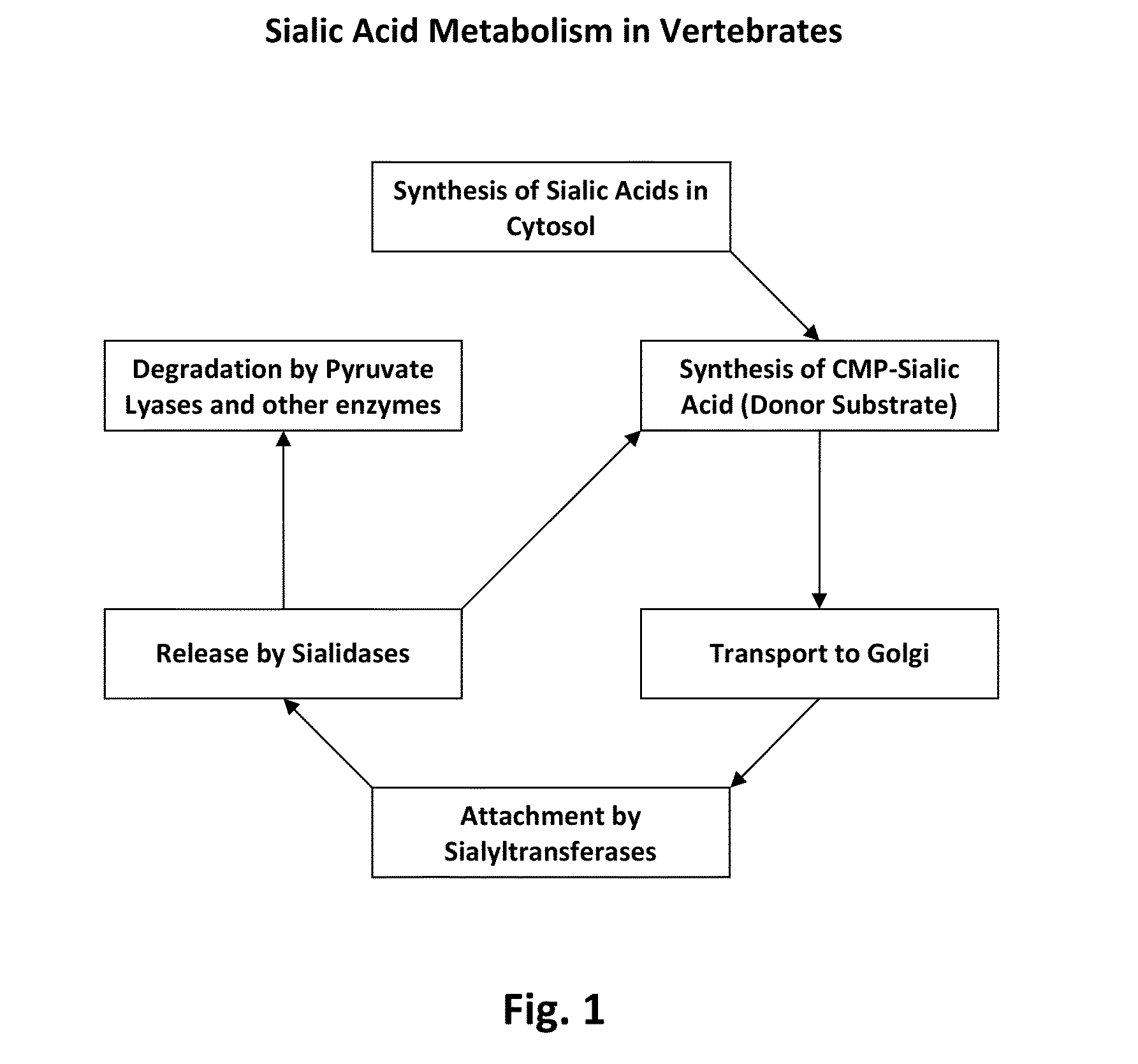Transgenic insect cells comprising a bacterial glcnac-6-p 2prime-epimerase
a technology of insect cells and glcnac, which is applied in the direction of viruses/bacteriophages, biochemistry apparatus and processes, dsdna viruses, etc., can solve the problems of low eukaryotic systems that cannot sialyze newly-synthesized glycoconjugates, high cost of mannac, media supplementation, etc., and achieve the effect of facilitating the production of recombinant glycoconjugates
- Summary
- Abstract
- Description
- Claims
- Application Information
AI Technical Summary
Benefits of technology
Problems solved by technology
Method used
Image
Examples
example 1
Generation and Initial Characterization of Novel Insect Cell Lines Expressing GNPE and Other Genes for Sialic Acid Biosynthesis and Utilization
[0130]As described above, the E. coli NanE gene encoding GNPE was amplified by PCR and cloned as a NotI fragment in to pCR®2.1TOPO® where its orientation and sequence was confirmed. The NotI fragment was then inserted into pIE1HR3 to produce pIE1HR3-GNPE, where the GNPE gene is operably-linked to the IE1 promoter of the Autographa californica nuclear polyhedrosis virus.
[0131]To evaluate the impact of GNPE expression on glycoconjugate sialylation, insect cells were engineered to contain the GNPE gene and a repertoire of higher eukaryotic genes encoding enzymes involved in glycoconjugate sialylation, including SAS (Nakata et al., 2000), CSAS (Münster et al., 1998), CMP-sialic acid transporter (Ishida et al., 1998), N-acetylglucosaminyltransferase II (Tan et al., 1995), β1,4-galactosyltransferase (Shaper et al., 1986) and either α2,3 sialyltrans...
example 2
Extending the Characterization of Insect Cell Lines Expressing Gnpe and Other Genes for Sialic Acid Biosynthesis and Utilization
General Materials and Methods Sources of Materials
[0138]All parts are by weight (e.g., % w / w), and temperatures are in degrees centigrade (° C.), unless otherwise indicated.
Immediate Early Expression Plasmids
[0139]The transgenic insect cells described in this example were produced using several immediate early expression plasmids, which can be used to constitutively express foreign genes in uninfected insect cells under the transcriptional control of the baculovirus iel promoter and hr5 enhancer elements (Table E2-1; Jarvis et al., 1990, Jarvis et al., 1996. pIE1Hygro, pIE1GlcNAcTII, pIE1HRGalT, pIE1ST6, and pIE1-hCSAT are described in the references given in Table E2-1. pIE1MmSAS and pIE1MmCSAS are new immediate early expression plasmids encoding mouse SAS (GenBank Acc. No. BC003307) and CSAS (GenBank Acc. No. BE689556), respectively. Finally, pIE1EcGNPE i...
PUM
| Property | Measurement | Unit |
|---|---|---|
| Fraction | aaaaa | aaaaa |
Abstract
Description
Claims
Application Information
 Login to View More
Login to View More - R&D
- Intellectual Property
- Life Sciences
- Materials
- Tech Scout
- Unparalleled Data Quality
- Higher Quality Content
- 60% Fewer Hallucinations
Browse by: Latest US Patents, China's latest patents, Technical Efficacy Thesaurus, Application Domain, Technology Topic, Popular Technical Reports.
© 2025 PatSnap. All rights reserved.Legal|Privacy policy|Modern Slavery Act Transparency Statement|Sitemap|About US| Contact US: help@patsnap.com



